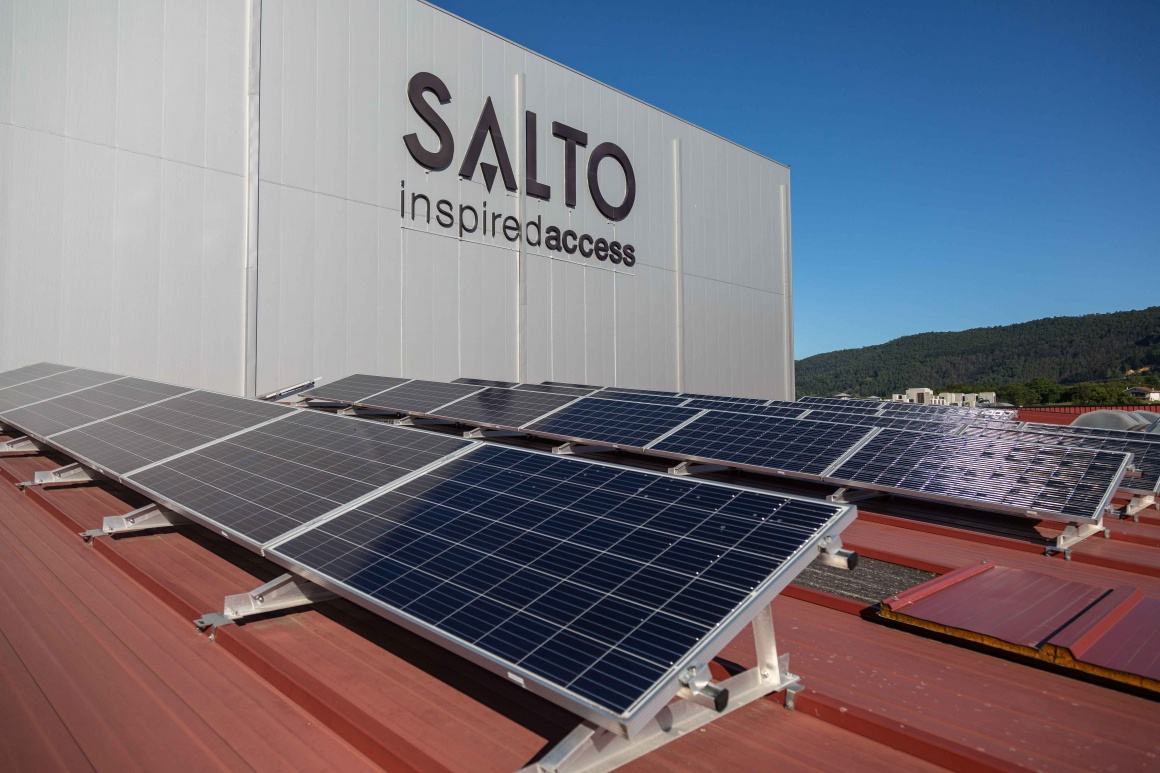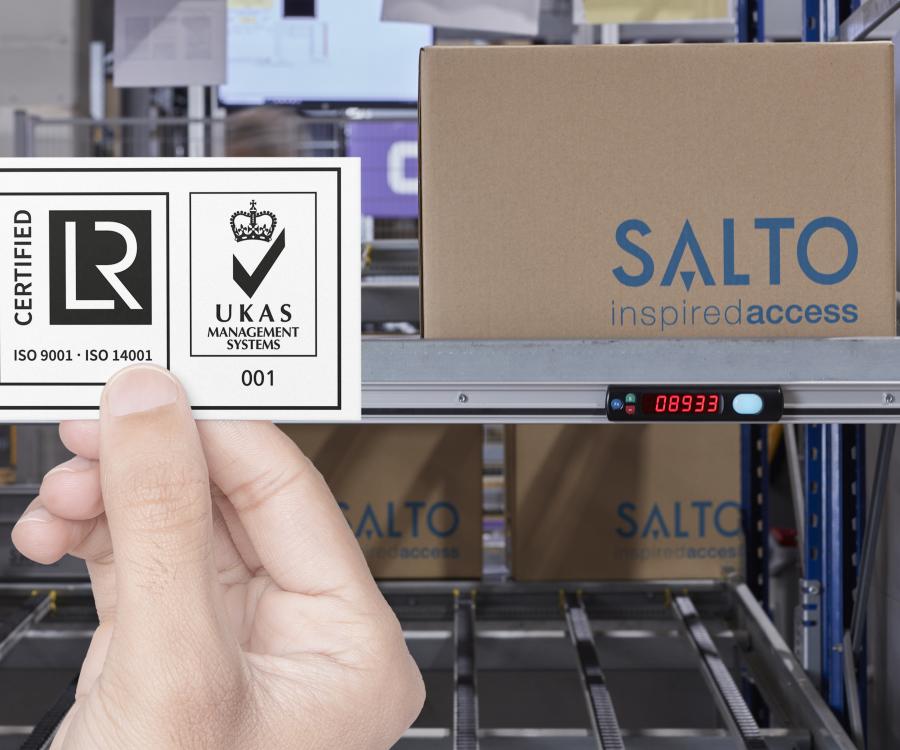In 2015, the United Nations Climate Change Conference reached a global pact (the Paris Agreement): to mitigate the effects of climate change and achieve neutrality by 2050. Neutral greenhouse gas emissions are achieved when the same amount of greenhouse gases (CO2 equivalent) emitted are removed from the atmosphere in different ways. This does not mean human activities cannot emit any CO2, but it does imply that we cannot generate more than we can remove.
SALTO Systems has achieved carbon neutrality thanks to its participation in two innovative projects with a triple-transformative effect on the economy, society and nature to achieve SALTO's goal: for its operations to have zero impact on the climate.
A SALTO Systems initiative that is preceded by ambitious emission reduction targets and that, subsequently, aims to offset emissions that could not be avoided.

In order to accelerate decarbonisation and contribute to achieving the emission-reduction goals set by the Paris Agreement and the UN Sustainable Development Goals, SALTO is committed to promoting environmental recovery projects through revegetation, in order to offset CO2 emissions by sequestering them in tree species. In
total, the 1,721 tons of CO2 generated in 2020 (359 at its headquarters in Oiartzun, Gipuzkoa in Spain and 1,362 across its worldwide network of offices and group companies) were offset in 2021 through two ground-breaking projects: River Chinchiná Forestry Project, Colombia (Fundación
Ecodes and CeroCO2): Reforestation and protection of hydrographic basins in the Andes, and Apadrina un Olivo (Sponsor an Olive Tree) in Teruel, Spain, which fights to recover olive groves, as well as against depopulation and the abandonment of olive groves in Spain.
The global pandemic put a spotlight on the value of environmental, social and corporate governance considerations. Both projects, in addition to having a positive environmental impact, contribute to the fight against climate change and positively influence the local society and economy, so not only do they regenerate neglected natural spaces and protect
biodiversity, but also foster the socio-economic growth of local communities.
MDL Forestal Chinchiná — Colombia
This forestry project in the Chinchiná river basin was the first project to be registered with the United Nations Clean Development Mechanisms (CDM) programme in Colombia, generating benefits through the mitigation of climate change by guaranteeing the capture of carbon dioxide. Additional environmental benefits include improving water quality and the protection of the region’s flora and fauna by creating biological corridors that connect forest fragments in the upper reaches of the watershed, through the restoration of highly degraded areas (biodiversity protection)
Apadrina un Olivo — Teruel, Spain
At ApadrinaUnOlivo.org, their mission is to recover abandoned olive
groves in Oliete, a town in the Teruel region of Spain that has seen its
population decline in recent years. This environmental, social and sustainable
rural development project helps families at risk of exclusion and keeps people
in depopulated rural towns by developing rural areas. The initiative also
protects the precious flora and fauna that inhabit and depend on the olive
groves to survive, helping to protect biodiversity and reduce the carbon
footprint.
Thanks
to these two projects and other strategies devised to decarbonise SALTO’s
activities, together with a commitment to the environment and looking after the
natural world, SALTO has been able to achieve carbon neutrality across all its
factories and offices, in more than 40 countries.
SALTO IN FIGURES
- 100% of the electricity used in SALTO's factory is sustainable and comes from renewable sources.
- 25% of the electrical energy comes from the sun. SALTO has installed 640 solar panels in its factory, the first large-scale solar power installation in its global network. In addition, numerous energy-efficiency initiatives have been adopted that have reduced carbon emissions through energy saving, avoiding 198 tons of CO2 per year.
- SALTO has also minimised single-use plastics in its packaging, offices, work café and marketing materials and replaced them with more sustainable alternatives, such as biodegradable products made from FSC-certified paper, cellulose and wood.
The environmental policies implemented by SALTO reduce the environmental impact of its operations. At SALTO, we adopt practices that reduce our carbon footprint, consume energy responsibly, minimise waste as much as possible and maximise resource use. We also set mandatory environmental standards to embed sustainability across SALTO's worldwide network of offices and headquarters.
To learn more about SALTO's environmental and sustainability policies, please visit: https://saltosystems.com/en/sustainability-environment/







